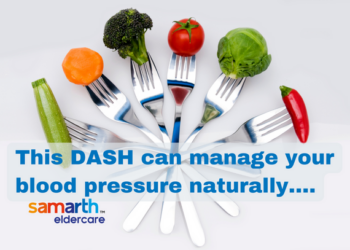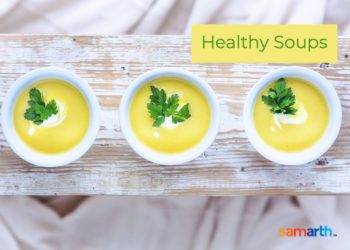We ignore some healthy foods and do not give it due attention; corn is one such food which is eaten commonly in almost all parts of India. It is rich in fiber content, and also contains antioxidants, Vitamins, and minerals. Corn is available in different colors in other parts of the world, while here in India, we mostly eat yellow corn. Popcorn is a favorite snack among people of all ages and is a must for most family movie outings. Corn can be eaten in many different ways and is a healthy snack.
Corn is called as Butta in North India, and the corn roasted on coal is a favorite roadside snack. Makke ki roti (made from corn flour) and Sarson ka saag (made from mustard leaves) is a world-famous Punjabi dish. While popcorn is not a great healthy snack, eaten in moderation, it is not bad either.
Nutritional value

Join Now >
It is said that corn has the highest antioxidant, anti-cancer, and anti-inflammatory components among cereals. It contains Vitamins A, E, K, B6, Thiamin, Riboflavin, Niacin, and folate, and minerals such as Calcium, Iron, Magnesium, Phosphorous, Potassium, Sodium, Zinc, Copper, Manganese, and Selenium. Being rich in phytochemicals, corn is a true health food that can help you stay healthy.
Energy booster
It is no wonder that cornflakes are considered to be a popular and healthy breakfast cereal. It is actually an energy booster because it is rich in carbohydrates. These are complex carbohydrates that get digested rather slowly, and thus provides energy to the body for a longer period.
Powerhouse of Iron
Corn is a superfood for those having anemia, as it is rich in Iron, and can help you reduce your deficiency. Vitamin B12, folic acid, and the Iron present in corn help the body produce red blood cells and maintain good hemoglobin levels.
Regulate blood sugar levels
Corn is rich in antioxidants and the anthocyanins and flavonoids contained in it, prevent and eliminate the free radicals that cause cell inflammation leading to cancer. These components help in improving the blood flow and help improve insulin production in the body. They also protect the pancreas, lower the absorption of cholesterol, and so is a good choice for diabetics. Since it lowers cholesterol levels, it also helps with your heart health.
Note: Corn can raise your blood sugar levels if you over-eat it as it does contain sugar and carbs, which are two things that usually diabetics are told to avoid. The key is to balance your portions in the diet or check with your doctor in case of doubt.
Anti-inflammatory properties
The protein and various phytochemicals present in corn are great anti-inflammatory agents, which help the growth of healthy new cells while inhibiting the damaged ones. Also, because of the high fiber in it, corn is good for preventing or reducing constipation, and other issues like GERD, and irritable bowel disease, or even colorectal cancer and diverticulitis.
Good for skin
As mentioned above, since corn helps in the production of healthy new cells, it is good for the skin. It is Vitamin C and lycopene contained in corn that increases collagen production. This prevents the free radicals generated due to the UV exposure, from damaging the skin. Corn is used in certain skin products (cosmetics) due to this quality as well.
Improves vision
Corn contains lutein and zeaxanthin, both of which are carotenoids that help improve our vision. The deficiency of these two, cause a lot of vision issues such as cataract and macular degeneration, among others.
Apart from this corn is a blessing for underweight as it helps them to gain weight because it is rich in calories. The good amount of pantothenic acid present in corn helps prevent stress and improves the function of adrenal glands. The Manganese in corn helps strengthen the connective tissues in the body while Magnesium, Iron, Copper, and Phosphorus contribute to stronger bones, as we age. More importantly, Thymine contained in corn is an integral component aiding cognitive function, and also helps prevent Alzheimer’s disease.











